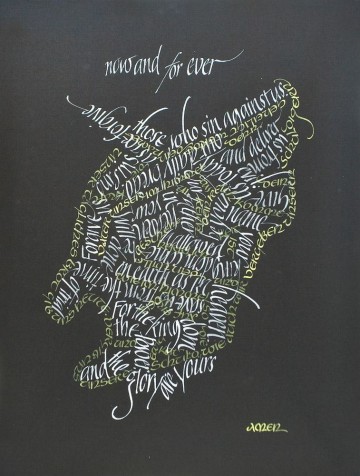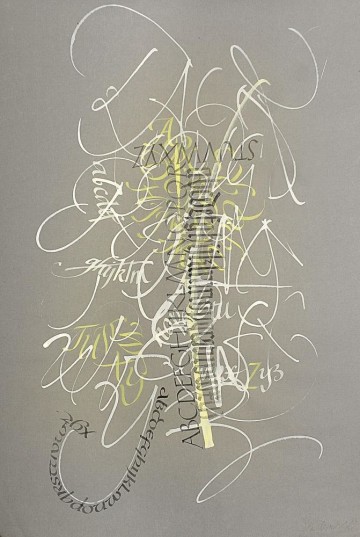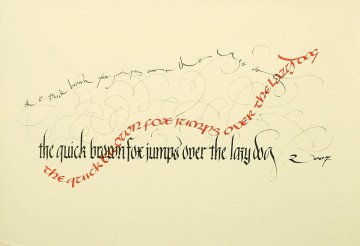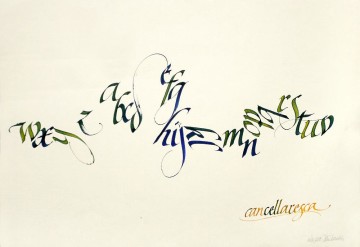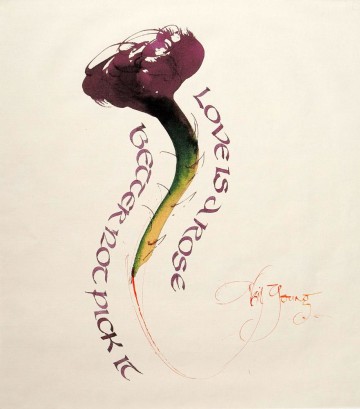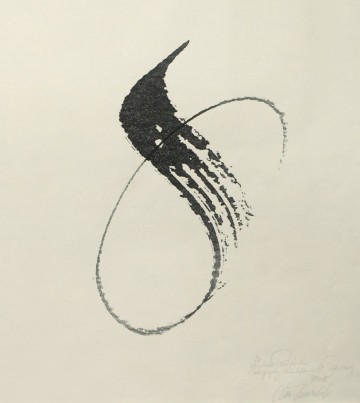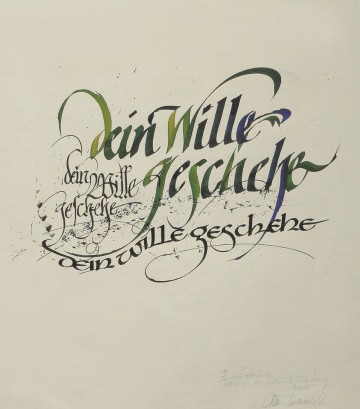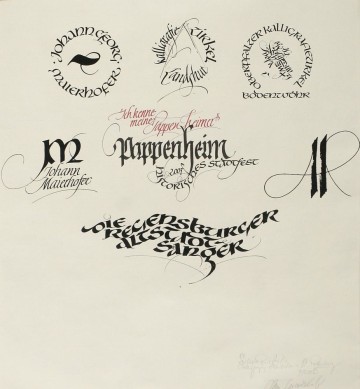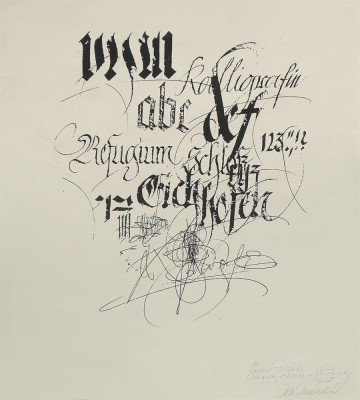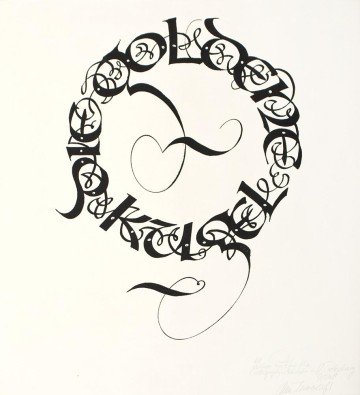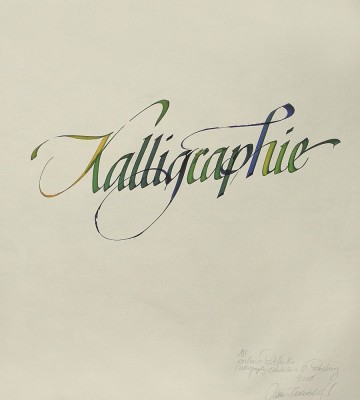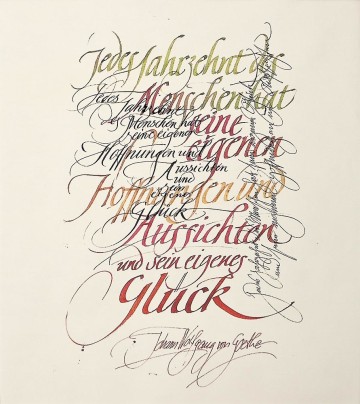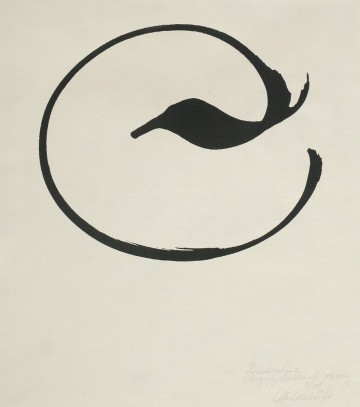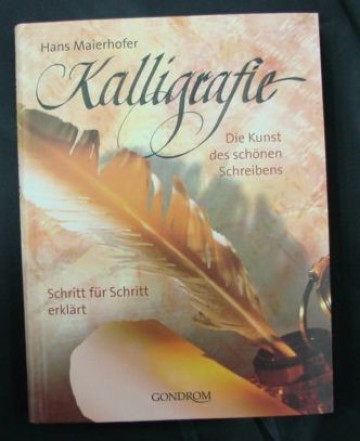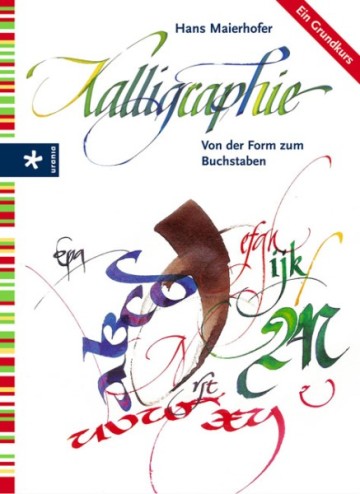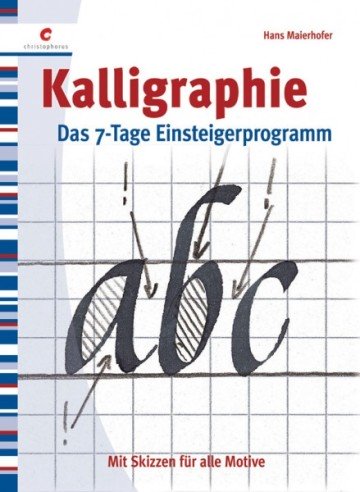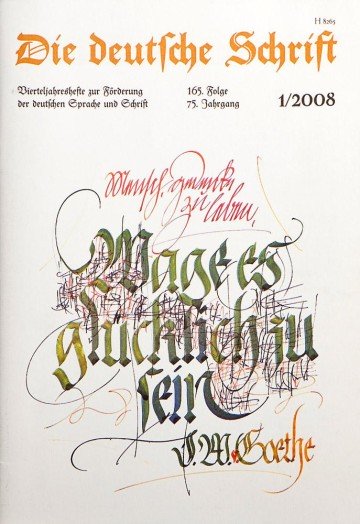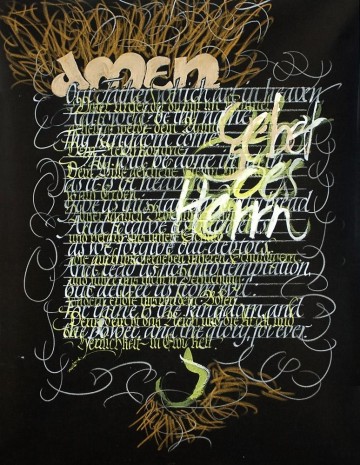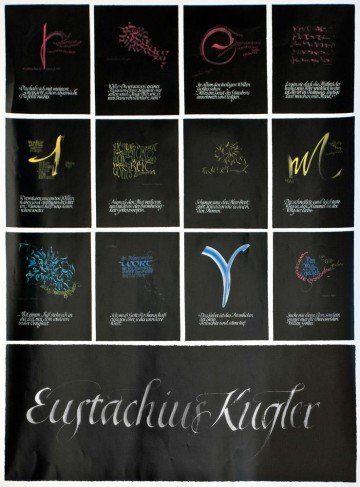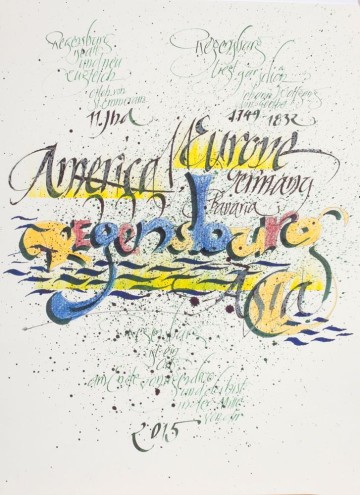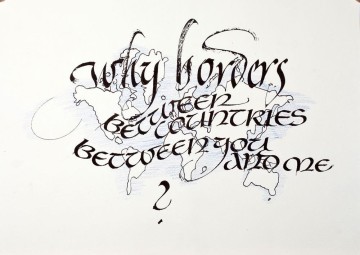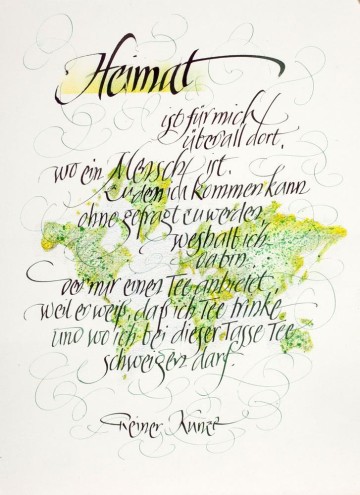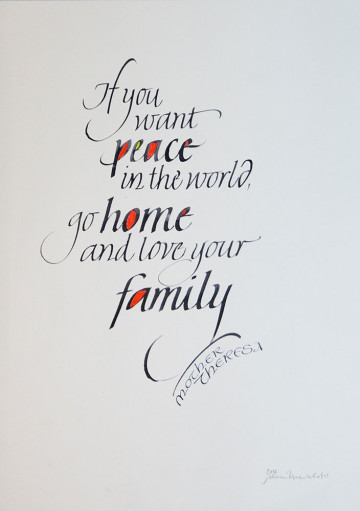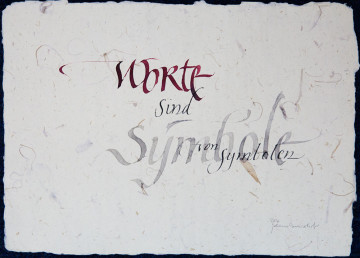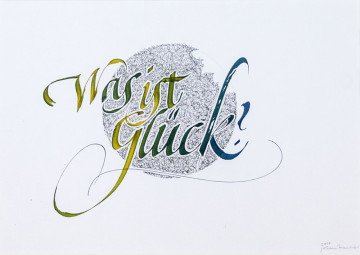Maierhofer Johann Georg
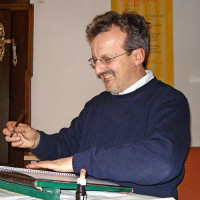
Maierhofer Johann Georg
Regensburg, Germany
Сalligrapher
Being a calligrapher in Germany
It is not common to be a calligrapher in Germany.
It is normal to do an everyday job and calligraphy in your spare time.
This was also my way.
Since I can remember I have been drawing, using my hands creatively, and writing.
I was an administrative secretary and did calligraphy.
I was a certified social pedagogue and did calligraphy.
I was a trainer and did calligraphy.
I learned about calligraphy, by reading books about calligraphy, by learning from my teachers and practicing the art.
In 1996 I decided to become a professional calligrapher.
I think, I was a calligrapher, from the time my hand could make a form in the air.
As a calligrapher, I work with pressure and release on the paper, I manage the speed of the forms in the drawing process, and I feel the nearness and the distance moving in me and then out of me.
Calligraphy is bound in a worldwide tradition, in the tradition of my country, and in my own tradition. Calligraphy is a good way to become connected to our roots. Knowing and feeling this, calligraphy is not just writing historical scripts. All our roots helps us to live in the present. Calligraphy is happening now. Calligraphy can be done through all your fear, through all your knowledge of the “wild side of life”, through all your happiness, dreams and love.
Calligraphic forms are “music for the eye”.
In a deeper way, the same forms I touch with calligraphy are also known and used by music. The difference is only the way we perceive them: in one case with the ear, in the other case with the eye. So we can say: music is one way heaven touches the earth, calligraphy is another.
Author works
The Golden Sphere. Entry Page of a fairy tale written by Hans Maierhofer
Written in uncial forms in a circle, black ink, Parallel-Pen, ingres-paper, 49x65 cm, 1998Kalligrafie. Die Kunst des shonen schreibens (Calligraphy. The art of Beautiful Handwriting)
Gondrom Verlag GmbH, Bindlach, 2005Kalligraphie. Von der Form zum Buchstaben (Calligraphy. From Shape to Letters)
Urania Verlag, Stuttgart in the Verlagsgruppe Dornier GmbH, 2006Kalligraphie. Mit skizzen fur alle Motive (Calligraphy. With Sketches for all Subjects)
Urania Verlag in the Verlag Kreuz GmbH, 2007Calligraphy is a kind of music not for the ears, but for the eyes.
(V. Lazursky)
